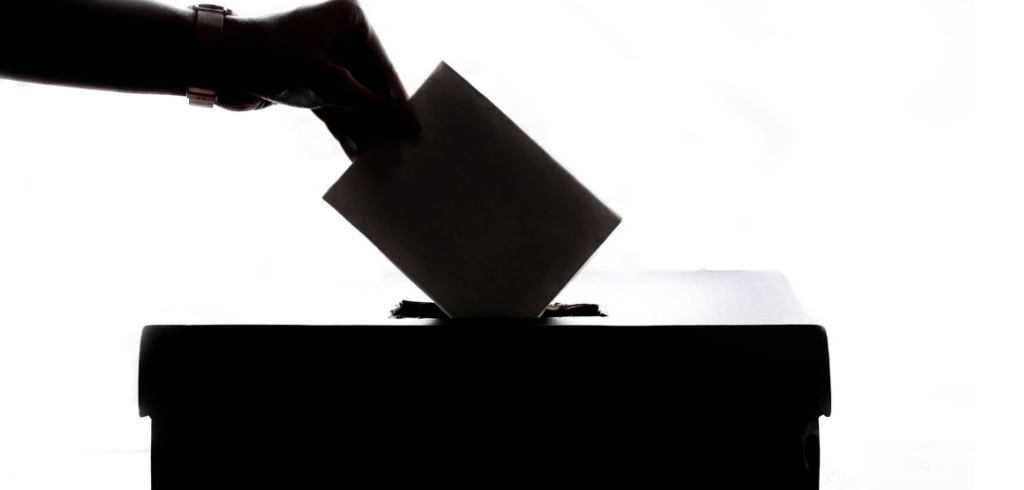New reports released by Fordham Law School’s Rule of Law Clinic outline reforms to protect the fairness and integrity of elections. The respective topics of the three reports are: responding to emergencies that disrupt presidential elections, preventing third-party candidates from unduly impacting presidential elections, and addressing representation and participation of individuals convicted of crimes. The Fordham Law Voting Rights and Democracy Forum published the reports this month.
Students in the Rule of Law Clinic—including eight recent graduates—authored the reports. As part of their research, they met with over a dozen experts, including scholars, policy advocates, former government officials, and former judges.
“These reports reflect exceptional and dispassionate studies by dedicated and talented law students of facets of American democracy in need of serious attention and reform,” said Dean Emeritus John D. Feerick ’61, who co-taught the Rule of Law Clinic with Senior Fellow John Rogan ’14.
“Presidential Election Disruptions: Balancing the Rule of Law and Emergency Response,” by Jason D’Andrea ’23, Sonia Montejano ’24, and Matthew Vaughan ’23, presents a proposal for how states should extend time for voting if an emergency impairs opportunities to cast ballots. A recently-enacted federal law, the Electoral Count Reform Act, provides for voting extensions, but defers to states to elaborate on the process. The report asserts, “Election laws must provide flexibility for government officials to swiftly respond to election disruptions while safeguarding against abuses of power.”
“Third Parties and the Electoral College: How Ranked Choice Voting Can Stop the Third-Party Disruptor Effect,” by Hillary Bendert ’23, Jacqueline Hayes ’23, and Kevin Ruane ’23, advocates for states to use ranked choice voting to prevent third-party presidential candidates from changing election outcomes. This “disruptor effect” has occurred in past presidential elections, and could happen again, especially given current dissatisfaction with the two major parties. A third-party candidate can siphon votes from an ideologically similar major party candidate, allowing the other major party candidate to win a given state. Ranked choice voting would ensure that the candidate preferred by the most voters in each state wins.
“Voting Rights and the Electoral Process: Resolving Representation Issues Due to Felony Disenfranchisement and Prison Gerrymandering,” by Andrew Calabrese ’23, Tim Gordon ’23, and Tianyi Lu ’23, argues for reforms related to how the electoral process treats people who have been convicted of crimes. First, the report calls for providing voting rights to individuals who have previously been incarcerated. This policy would promote reintegration and civic participation, among other benefits. Second, the report advocates for ending prison gerrymandering, the practice of counting incarcerated people as residents of the electoral districts where prisons are located. Those districts receive disproportionate political influence, while the representation of incarcerated individuals’ home communities is diluted.
Previously released Rule of Law Clinic reports are available here. Additionally, reports from the Democracy and the Constitution Clinic—some of which also focus on electoral issues—are available here.

